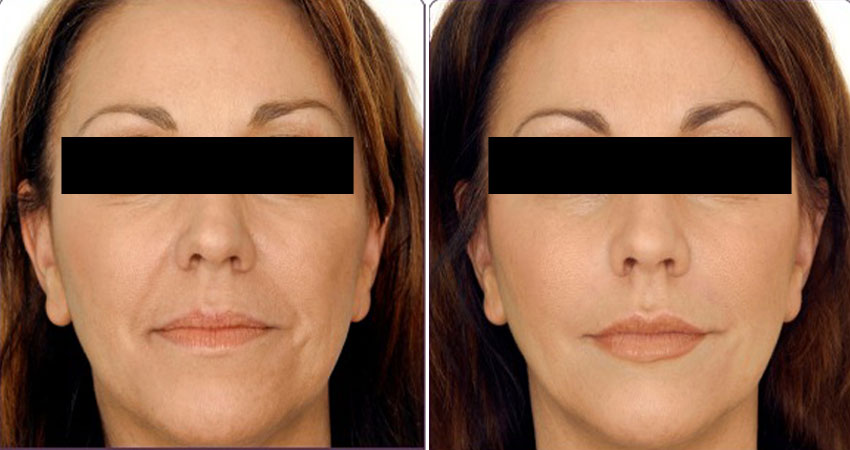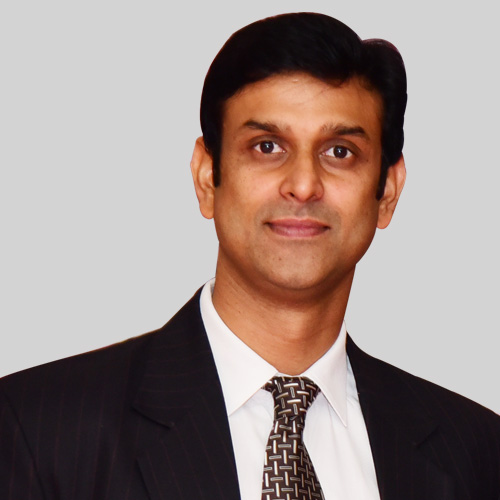A facelift (Rhytidectomy) is a technique in cosmetic surgery that aspires to give a more youthful look to the face. It reshapes the face by removing the extra facial skin. Rhytidectomy can tighten sagging skin called jowls,around the jawline. Similarly, it helps in removing excess hanging skin and fat under the chin and in the neck. It can evenmore change the appearance of the forehead, cheeks, brows, and eyelids. Thus, the facelift surgery has several benefits like it removes and tightens the hanging skin, lowers the hang of the cheeks around the jawline and uplifts the corners of the mouth.
Kinds of Facelifts.
Facelifts can be of various kinds like Short Scar facelift for patients with less neck looseness, Mid facelift limited to the cheek complex, MACS facelift accessing cranial suspension, Thread lift or feather lift and endoscopic facelift.
This surgical procedure at Dr. Anurag Bhargava’s clinic is performed with utmost care to get back your youthful look. If you are looking for a facelift surgery in Indore, India, Dr. Anurag Bhargava is an undoubted choice. He has over 12 years of experience in cosmetics, as well as, plastic reconstructive surgeries, and can help you to enhance your personality.
What happens in Facelift Surgery?
The flap of skin on each side of the face is pulled back during a face-lift, and the tissues below the skin are surgically changed to get the contour of the face to a younger look. Before the flap is stitched closed, excess skin is removed.
As part of face-lift, a neck-lift is done to reduce fat deposits and sagging skin on the neck. As such a face-lift will not decrease wrinkles or damage from sun exposure.
Because of normal age-related changes, as you grow old the look and shape of your face are changed. The skin becomes less elastic and loose. The fat deposits also increase and decrease in areas of your skin. The following changes may be reduced with facelift surgery.
- The weakening appearance of your cheeks.
- Excess skin at jowls.
- Increasing of the fold of the skin from the side of the nose to the corner of your mouth.
- Weakening skin and excess fat in the neck.
A facelift doesn’t provide treatment for wrinkles, sun damage or irregularities in the skin.

The risks associated with facelift surgery can be managed with adequate care, medication, and surgical correction. Long-time complications can cause changes in looks. The risks include:
- Hematoma – Swelling and pressure which occurs due to the collection of blood ( Hematoma). It is treated quickly with surgery to prevent damage to the skin and other tissues.
- Scaring – Though cuts are concealed by the hairline and natural contours of the face and ear. Many times cuts can result in red scars. Corticosteroid injections and other treatments might be used to improve the appearance of scar.
- Nerve Injury- Nerve that control sensation or muscles can be permanently or temporarily be affected by the injury. Temporary paralysis of select muscle may result in uneven facial appearance or expression. Due to nerve injury loss of sensation may occur when lasts a few months or year. Surgical involvement may offer some improvement.
- Hair Loss- Temporary or permanent hair loss may occur near the incision site. Permanent hair loss can be treated with surgery to transplant skin with the hair follicle.
Lifestyle Habits that cause a risk
Certain lifestyle habits may also increase the risk of complications. Due to some unfavorable results as mentioned below the doctor may advise against a facelift.
Blood Thinning Medications Cause Hematoma – There are certain medications
administered which cause thinning of blood and increase the risk of hematomas after surgery.
Medical Problems – Medical problems such as high blood pressure, diabetes may not easily allow the wound to heal and other medical condition that prevents blood clotting may cause hematomas and heart complications.
Smoking – Due to smoking it may take time for the wound to heal and may also cause skin loss after face-lift surgery.
Weight Transition – If you face repeated weight gain or loss the result of the surgery may not be satisfactory.
- Medical history and examination– The doctor will physically examine you and will study recent records to suggest surgery. The doctor may enquire about your medical conditions, previous surgeries, history of smoking, drug or alcohol use.
- Medical Investigation – You will have to give details about the medicines you take regularly including prescribed drugs, herbal medications, vitamins.
- Facial examination – The doctor will take photos of your face. To determine your best options for facelift surgery the surgeon will examine your bone structure, the shape of your face, fat distribution and quality of your skin.
- Outcomes of Face Lift – The surgeon will make you understand how a face-lift will likely change the appearance and what a facelift doesn’t fulfill, such as wrinkles or asymmetry in your face.
Instructions Before Face Lift
- Medicine Directions – The doctor may advise you to stop taking certain blood-thinning medicines before the surgery. Consult the doctor about which medicines are safe to take and how the dose can be adjusted.
- Wash Your face and hair – Before the surgery, the doctor will ask you to wash hair and face with a germicidal soap.
- Not To Indulge in eating – The night before your facelift, avoid eating anything. You can drink water and take medicines as approved by the doctor.
- Arrange For Help – After your surgery make someone available to take care of you. Stay with you after the surgery.
- Expectations For you
A facelift is performed in a hospital or outpatient facility.
Before the surgery
Either local or general anesthesia is given before the surgery.
During the Surgery
The excess skin is removed in facelift surgery. It also involves lifting the skin and tightening the tissues and muscles. Fat in the face and neck may be carved, removed or redistributed and the wound is stitched.
The type of incision will depend upon the patient’s preferences and the techniques that will be used.
A face-lift incision – An incision might be made under your chin to improve the look of your neck. It may start at your temples in the hairline, continue around the front of the ears and ends behind your ears in the lower scalp.
A limited incision – A limited incision does not extend into the lower scalp. It begins in your hairline just above the ear, wraps around the front of your ear.
Neck-Lift incision – In neck lift incision a small incision is made under your chin. It starts in front of your earlobe and continues around your ear into your lower scalp.
Face surgery usually takes 2-4 hours.
Results –
A face-lift can give your face and neck a younger look. It is usually noted that face-lifts are not permanent. With age, the facial skin may begin to sag again. Face-lift can last to 10 years.
Recovery Process
After undergoing facelift surgery, it’s essential to follow post-operative care instructions diligently to ensure a smooth recovery and optimal results. Here’s what to expect during the recovery process:
Immediate Post-Surgery Care
- Upon waking up from anesthesia, you may experience some grogginess and discomfort, which is normal.
- Your surgeon or medical team will monitor your vital signs and provide pain medication to manage any discomfort.
- You’ll have bandages or dressings over the incision sites to protect them and minimize swelling.
First Few Days
- The initial days following surgery are crucial for rest and recovery. Plan to have someone assist you at home, as you may feel weak or tired.
- Swelling and bruising are common during this time and may peak within the first 48 hours before gradually subsiding.
- Apply cold compresses to reduce swelling and keep your head elevated while resting to minimize discomfort.
Week One
- Your surgeon may schedule a follow-up appointment to assess your healing progress and remove any drains or stitches.
- Follow your surgeon’s instructions for wound care, including gentle cleansing and applying prescribed ointments or creams.
- Avoid strenuous activities, heavy lifting, or bending over, as these can increase swelling and strain on the incisions.
Weeks Two to Four
- Swelling and bruising should continue to improve, although you may still experience some residual effects.
- Gradually reintroduce light activities and exercise, but avoid high-impact or strenuous workouts until cleared by your surgeon.
- Continue to protect your skin from sun exposure and follow a gentle skincare routine recommended by your surgeon.
Long-Term Recovery
- Full recovery from facelift surgery can take several weeks to months, depending on individual healing and the extent of the procedure.
- As swelling subsides and tissues settle, you’ll begin to see the final results of your facelift emerge.
- Attend all scheduled follow-up appointments with your surgeon to monitor your progress and address any concerns.
Long-Term Results
While facelift surgery can provide dramatic rejuvenation and a more youthful appearance, it’s essential to understand that the results are not permanent. Here’s what you can expect in the long term:
Natural Aging Process
Despite the transformative effects of facelift surgery, the natural aging process will continue over time.
Factors such as genetics, lifestyle choices, and sun exposure can influence how quickly your face ages post-surgery.
Maintenance and Skincare
To prolong the results of your facelift, adopt a comprehensive skincare routine that includes sun protection, hydration, and regular use of anti-aging products.
Avoid smoking and excessive alcohol consumption, as these habits can accelerate skin aging and compromise your results.
Regular Follow-Up Visits
Your surgeon will likely recommend periodic follow-up visits to assess your long-term results and address any changes or concerns.
During these visits, your surgeon may recommend additional treatments or procedures to maintain or enhance your facelift results.
Lifestyle Factors
Healthy lifestyle habits, including a balanced diet, regular exercise, and stress management, can support overall well-being and contribute to the longevity of your facelift results.
Maintain a stable weight, as significant fluctuations can impact the appearance of your face and undermine the effects of surgery.
Realistic Expectations
Understand that while facelift surgery can provide significant improvement in facial appearance, it cannot stop the aging process altogether.
Realistic expectations and open communication with your surgeon are essential for achieving satisfactory long-term results and maintaining realistic expectations.
By following these guidelines and staying proactive about skincare and overall health, you can enjoy the benefits of your facelift surgery for years to come. Always consult with your surgeon for personalized advice and recommendations tailored to your individual needs and goals.
Emergency Cases
+91 9826723000
Your treatment plan is designed for steady progress, with every phase promptly implemented.
Related Procedures

Rhinoplasty
Nose is one of the most defining part of your face. But if the nose is not symmetrical....

Dimple Creation
Dimple creation surgery is a short, thirty-minute procedure that can add an endearing...

Chin Surgery
Originally Chin Implant was used for reconstruction of birth defects and trauma-related...

Cheek Augmentation
The three “landmarks” of the face are the chin, nose, and cheek areas...
Make an Appointment
Medical director

People Say
-
I got a three molars removed from Dr Anurag Bhargav. The surgery was performed in around 30-40 minutes for all the molars. The surgery was performed really well and I had a good experience. After the surgery, I experienced pain for around a week, but the painkillers prescribed really helped. I was satisfied with the quality of surgery and the medical staff at the clinic were also very courteous. They followed up a couple of days after the surgery to take feedback and remind me of the steps needed to heal faster. Overall, I would recommend Dr Anurag Bhargav for teeth extraction. Thank you.

 Aayushi Jain
Aayushi Jain
Mar 18, 2020 -
Hello, My name is Archana Shukla. I am resident of Indore . I had problem regarding my teeth and then I took treatment from Dr. Anurag Bhargava . He suggested me for implant. And now my problem has been cured . The treatment was really good with a very caring atmosphere. I am really grateful for my experience over there. Thank you ..

 Archana Shukla
Archana Shukla
Mar 17, 2020 -
I had some issues with my teeth and visited Dr. Anurag for consultation. My main issue was addressed by RC & Crowing of 2 teeth. Overall Staff who manages everything from Patient interaction to the ones who are directly involved in treatment is doing good Job. My overall experience has been great. I would definitely recommend the place if you have any Dental or Oral issues.

 Jitendra Jeswani
Jitendra Jeswani
Jan 27, 2020 -
Dr. Anurag Bhargav is very nice doctor and excellent person as well. My wife is under his treatment, she is very much satisfied with treatment. A doctor must have good behavior with treatment experience, Dr. Anurag Bhargav has this trait. He is flexible in time, moral boosting.

 anil ojha
anil ojha
Jan 11, 2020

